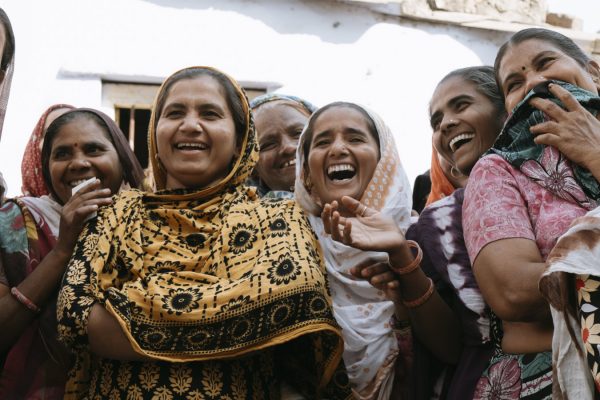Water and Sanitation
A staggering 355 million women and girls are still waiting for a toilet in India (WaterAid, 2017). Women from low-income communities face the brunt of this gap as they compromise their safety each day to carry out their daily sanitation routine.

MHT’s mission is to strengthen grassroots collectives of women in the urban informal sector to advance constructive dialogue and action on improving their housing, living and working environments.
Our Story
The Mahila Housing Trust (MHT) is improving urban built environments in poor communities through collective action. Since our establishment in 1994, we have mobilized women to exercise their civic rights and empowered them to take charge of their habitat improvement process. By forging unique relationships with poor communities and local governments, we have advanced access to basic services, promoted climate resilience, and deepened participatory governance.
Today, we work in cities as well as rural areas across 9 states in India, to reach services to the poor and make their voices heard in city level planning and governance processes. MHT’s work has been recognized nationally and internationally and has received numerous awards such as the Ashden Award for Cooling in Informal Settlements, United Nations Global Climate Action Award for Women’s Action Towards Climate Resilience for Urban Poor in South Asia, and United Nations Sasakawa Award for Disaster Risk Reduction, among many others.
MHT Timeline
Started our journey in driving sanitation change at scale with the Parivartan Slum Networking Program in Ahmedabad.
The Parivartan Program reached 35,500 slum dwellers with integrated services of water, sanitation, waste management, and paved roads. Subsequently, the program was expanded to other cities of Gujarat.
Initiated work in energy efficiency to enable access to safe and legal electric connections for around 1.39 lakh slum dwellers in Ahmedabad.
Promoted women led credit cooperatives in Gujarat to support microlending for habitat improvement.
Expanded our reach to Delhi and Rajasthan.
Facilitated microfinancing programs with the aim to provide loans to formalise housing and habitat improvement.
Worked towards securing housing and land rights after JNNURM made national funding available to cities.
Expanded our reach to Bihar, Jharkhand, and MP facilitating
basic services in slum communities.
Initiated work towards building climate resilience with support from Global Resilience Partnership.
Promoted women’s participation in city governance and planning.
MHT in partnership with Global Parametrics (GP), set up a strategy by building an index-based risk transfer solution for excessive urban heat.
Conducted a study to develop a strategic plan to build, increase and
strengthen construction workers’ voices on the issue of air pollution in Delhi.
Our Approach
Through our grassroots programs in habitat development, climate change resilience, and participatory governance, we empower women from low-income communities to exercise their rights and collectively demand improved living and working environments. By developing grassroots-level partnerships with women and leveraging technical innovation, we build social capital and community capacities to solve problems in the urban environment. Our interventions are socio-technical in nature. We take an incremental and phased approach to sustain these.








